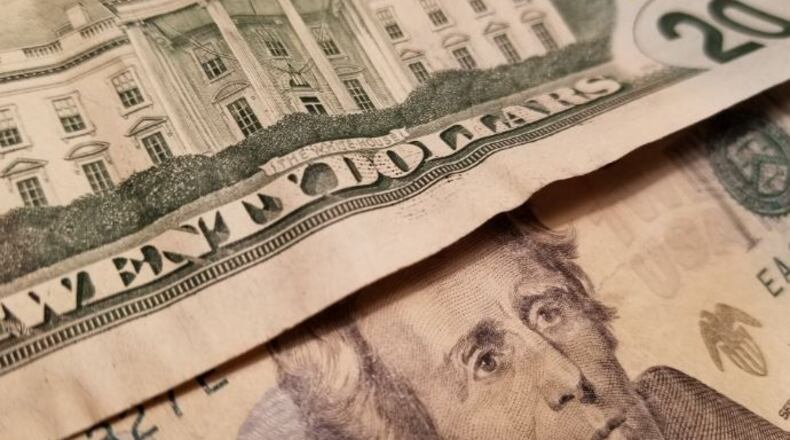Despite running a surplus of $119 billion in the month of September, the Treasury Department reported Monday that the federal government chalked up a budget deficit of $779 billion for Fiscal Year 2018, the biggest yearly deficit since 2012, a 17 percent increase over the total amassed by Uncle Same in red ink for 2017.
The final budget numbers for the month of September - which ends the fiscal year - represented the first monthly surplus since April, as the feds brought in $343.5 billion in revenues, while spending $224.4 billion.
Those revenue figures were down $5 billion from a year ago, continuing a trend since the approval of a major tax cutting plan at the end of 2017; individual income taxes were down $4 billion from September of 2017, while the collection of corporate income taxes were down $21 billion from the same month a year ago.
Credit: Jamie Dupree
Credit: Jamie Dupree
At $779 billion, the 2017 deficit was the largest since 2012, the last of four straight years of deficits over $1 trillion in the Obama Administration.
The latest White House budget estimates predict several years of budget deficits over the $1 trillion mark - the big difference is that these deficits are occurring during a time period of economic growth.
"The last time the deficit was this high, our country was recovering from the Great Recession," Democrats on the House Ways and Means Committee immediately proclaimed, denouncing the GOP as the "the party of tax cuts for the wealthy and fiscal irresponsibility."
Comparing 2018 to 2017 - revenues were up by $14 billion, from $3.315 billion to $3.329 trillion, while total spending went from $3.98 trillion to $4.108 trillion.
"As expected, recent tax cuts and spending increases – all put on the national credit card – are making a bad problem even worse," said the budget watchdog group Committee for a Responsible Federal Budget.
"This is bananas for an economy where unemployment is at a forty year low," said Justin Wolfers, an economics professor at the University of Michigan. "It's nuts."
Republicans had argued during Congressional debate over the tax changes that the tax cuts would 'pay for themselves' - so far, that did not happen in 2018 - and according to the estimates of the Trump White House, deficits will continue to go up for several years.
In fact, the President's own budget experts are forecasting that Mr. Trump will put together just as much in deficits as President Obama did.
About the Author
The Latest
Featured




